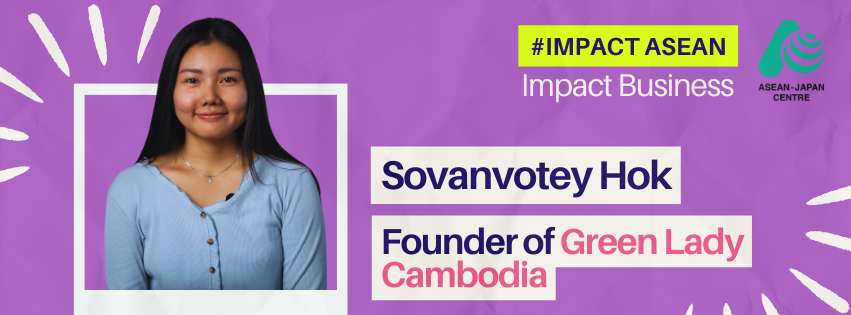Sovanvotey Hok, Founder of Green Lady Cambodia advocates for women’s health via sanitary, environmentally friendly, and affordable menstrual products. Established in 2017, Green Lady’s work also includes menstrual health and hygiene (MHH) as well as sexual and reproductive health rights (SRHR) education and has conducted classes for over 1,000 girls in Cambodia.
Read about more Votey’s #impact journey below.
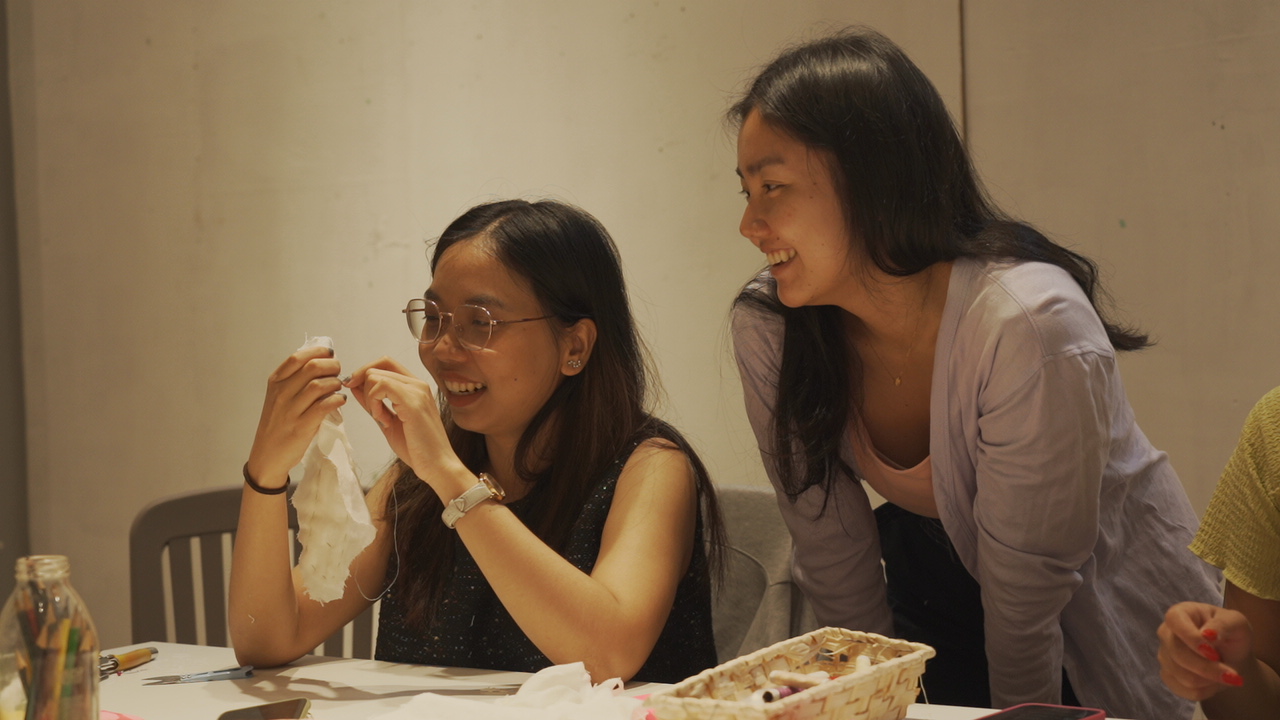
Q. Can you tell us about the activities of your #impact business, Green Lady Cambodia?
Green Lady Cambodia provides safer menstrual products like washable pads for women and girls. We use 100% local cotton from Takeo province in Cambodia to create our washable pads and sell them in different packages on our website. We have sold over 20,000 washable pads.
Menstrual and reproductive health are still stigmatized topics in Cambodia and are rarely discussed in schools. We believe in promoting openness to these topics. Over the past four years, Green Lady has trained Cambodian women to sew washable pads and creating menstrual hygiene kits, as well as facilitated menstrual health and reproductive health classes for girls and boys in public schools.
We also offer consulting services in reproductive health education to NGOs, in response to the limited resources for sexual health education for the public. Our vision is for all Cambodian girls and boys, in and out of school, to have access to quality reproductive health education. We aim to ensure girls have a better experience during their first menstruation and that women are aware of their menstrual health.
Q. How did you kickstart Green Lady Cambodia, despite the stigmatized topic?
When I graduated from law school in 2016, I started working at a law firm but didn’t feel fulfilled. I started volunteering with environmental groups, and eventually began working with one full-time.
Discovering washable pads and menstrual cups completely changed my perspective on my body and health. I wanted to share this knowledge with other girls and women in Southeast Asia.
– Sovanvotey Hok, Founder of Green Lady Cambodia
I started small in 2017, talking to friends and family. Partnering with a teammate from Viet Nam, we eventually secured funding through the Young Southeast Asian Leaders Initiative (YSEALI) Seeds for the Future program sponsored by the US State Department. We created a cross-country project called “Green Lady” with the goal to educate and provide sustainable menstrual products, break taboos, and address sexual and reproductive health for both girls and boys.
Initially, it was a one-year project. But seeing its potential, I sought continued funding and partnerships to expand our reach. We continue our efforts independently; in Cambodia, I focus on education and sustainable practices, while my partner in Vietnam, Minh Ngoc, concentrates on environmental workshops.
Q. Following YSEALI, how did Green Lady secure funding to scale?
In 2017, we received funding for 1 year from the YSEALI Seed Grant, and I invested my own resources as well. Then, we managed to secure additional support with FRIDA Feminist Fund. I invested most of my personal money and grants into workshops, product development, and prototyping for nearly two years.
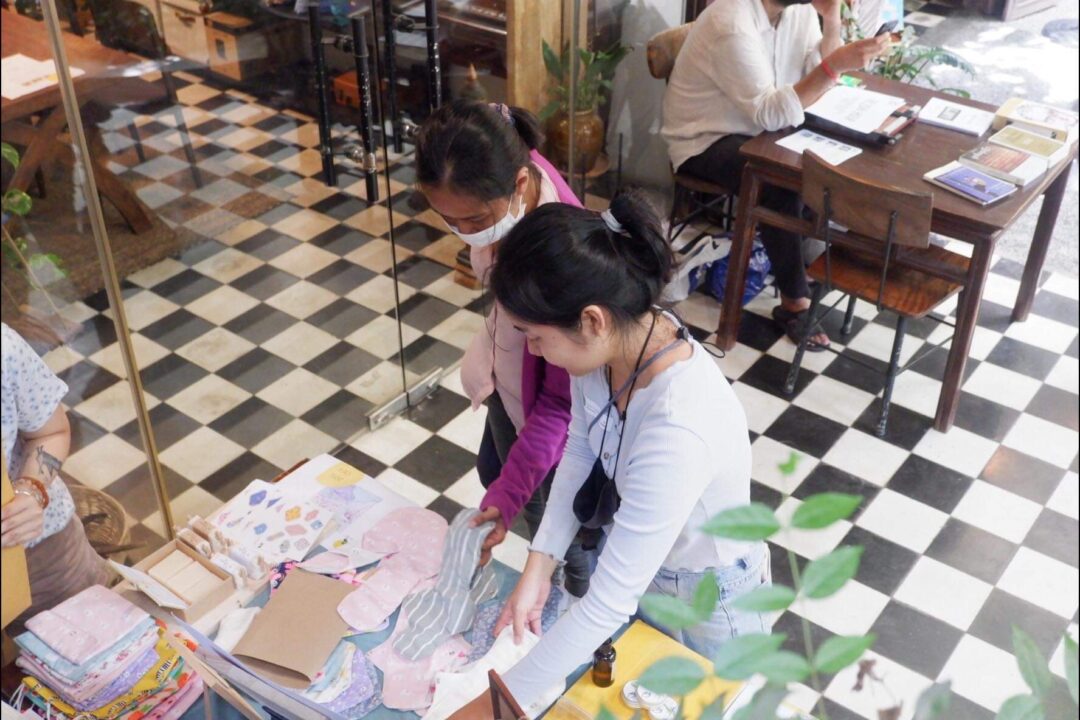
By 2019 we began to see real progress. Our prototypes were ready for production, and we began selling washable pads in a local shop and gradually increasing production. FRIDA has been supportive, consistently finding ways to fund us despite the uncertainty of annual funding, which has helped us sustain and grow our project over the years.
Q. How did the pandemic affect the momentum gained in 2019?
I quit my job to focus on this venture, saving money for prototyping by jumping between jobs. Once the pads started generating income, things were looking up. Then COVID hit and disrupted our progress. Fortunately, I began consulting with NGOs and fostering partnerships to maintain Green Lady. Post-COVID, we’ve been recovering, maintaining resilient production on the business side while continuously improving my consultancy skills.
After COVID, we were fortunate to win a $10,000 impact investment from Lafiya Innovate, which supports social impact startups. This funding allowed us to revamp our social media, logo, and website, helping us recover and grow.
Q. What government support would benefit your #imapct business?
National initiatives on SRHR in Cambodia need streamlining and synergy. Discussing and promoting washable pads was unusual in 2017. Things began to change in Cambodia 2020 with more funding towards the topic in the country, coming from UNFPA. It aimed to improve SRHR education and eliminating gender-based violence. Now, while the government is starting to include SRHR in schools, challenges remain. SRHR should be a topic of collaboration between Ministries, and we need more educators on the topic not just in a classroom-based setting, but also participatory learning for out-of-school youth.
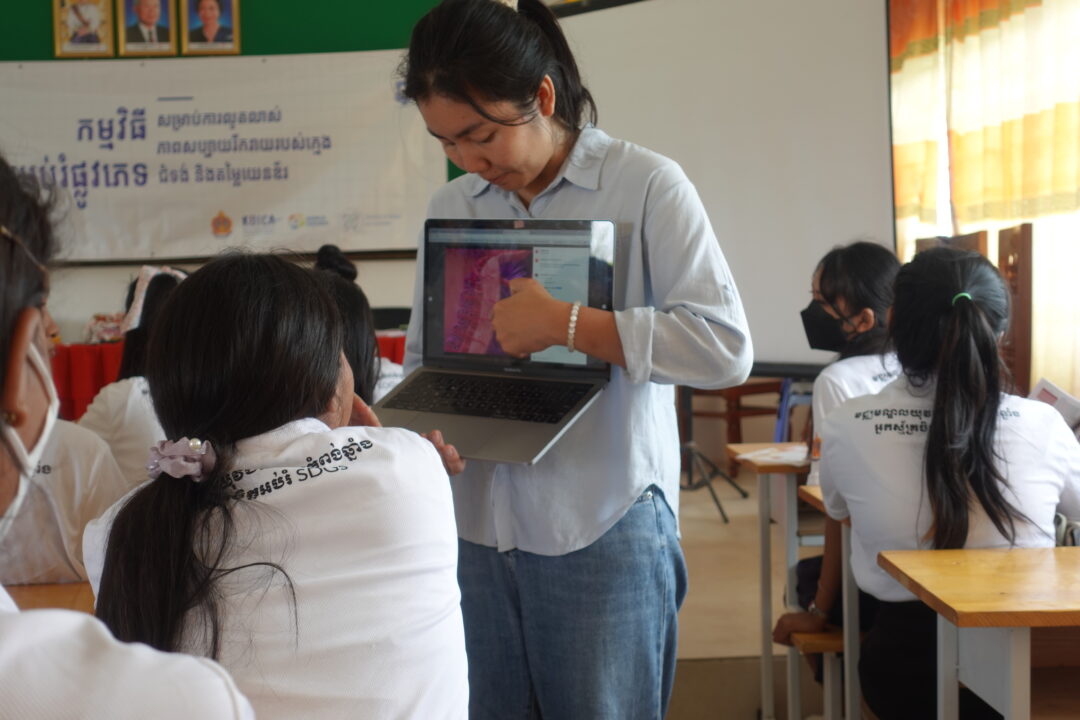
The ideal setup would involve influential donors persuading the government to prioritize quality over quantity in SRHR education. All stakeholders should emphasize the importance of SRHR, integrating it into practical classes and training teachers effectively. Currently, many teachers are either too shy or untrained to discuss these topics. At this stage, acknowledgement of the issue is not enough to solve the problem, we need to act for re-generational change.
Second, there is a need for a practical legal framework for social enterprise (SE) registration. Current legal frameworks applicable to small social enterprises in Cambodia are inflexible, making it is difficult for startups or entrepreneurs to decide to register because of the taxation complications and fragile economy especially after the pandemic. There is a case in the past that we couldn’t get a tax exemption from customs even for a donation of washable pads sent over from Japan. We made an appeal to custom department but was unsuccessful; they stated it is not in covered by Cambodian law.
Just as how you might overlook something in your own house, until there is a guest who points it out to you – we must invite and be receptive towards outsider opinion to sometimes to challenge our own perspectives as they may remind us of our values and what we might miss in our own house.
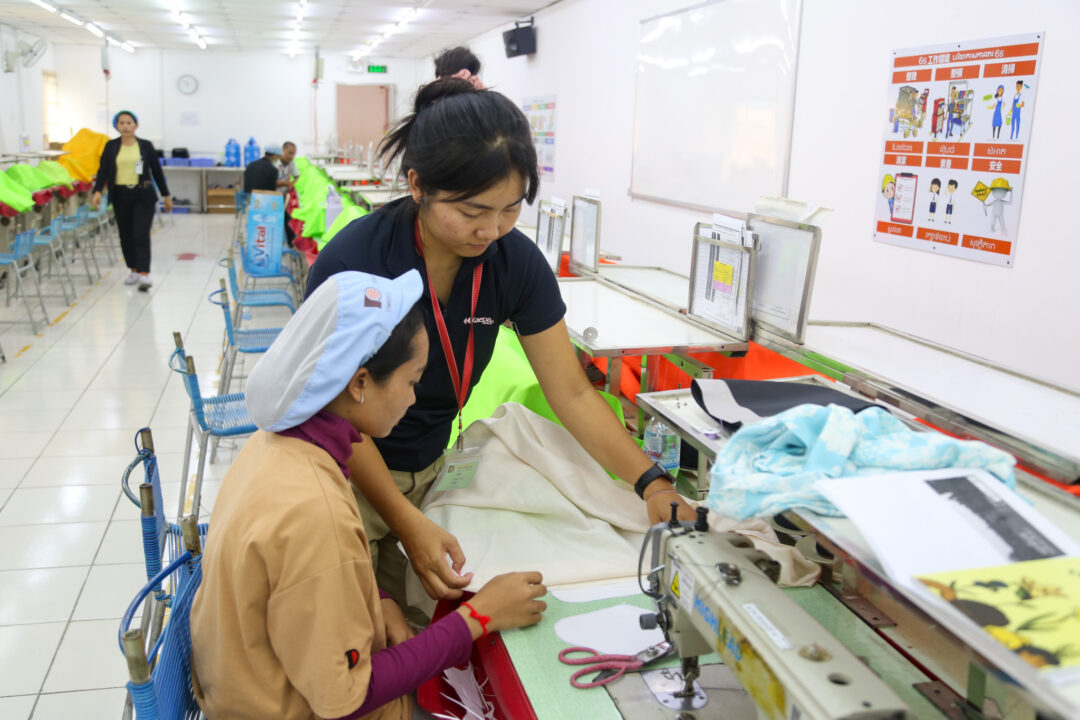
Q. What are the challenges you faced in your #impact journey?
I have the ideas, knowledge, and motivation for my projects, especially in the nonprofit sector, where I have supportive NGO partners. However, the business side of things can be tough. For example, citizens living in cities and full-time workers find it hard to use washable pads at work, so I have ideas for biodegradable pads that don’t need to be perfect, just functional for a few hours. Despite having partners to help, accessing necessary labs in Cambodia is challenging.
In the nonprofit realm, I aim to bring materials to schools where students often lack resources. With the registration complications, I face barriers in accessing these schools directly, requiring formal approval and administrative hurdles. In this sense, our partnerships with trusted NGOs are crucial to access different audiences for our educational programs and streamline the process. Our partnerships spanning various organizations enable us to work with private schools, factory workers, young people with disabilities, and community women.
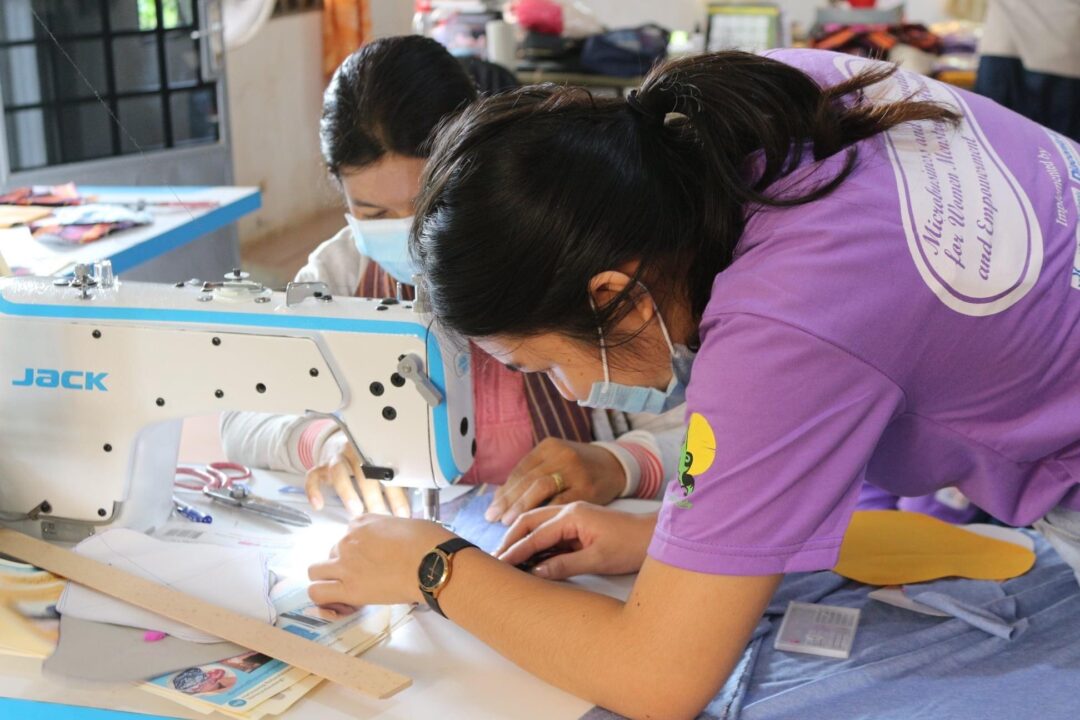
Q. What are some growth strategies you would like to share with our readers?
This journey of leading Green Lady the past seven years has taught me the power of one’s unwavering motivation, especially when challenging established norms. Our initiatives, often centred around touching individual lives and creating impactful stories, have faced numerous challenges. Even though we aren’t officially registered, receiving acknowledgment from the Ministry of Women’s Affairs, albeit through social media, shows that our efforts are making an impact. It’s clear that while the government may be aware of our work, their capacity to act immediately might be limited. However, our persistence ensures that our cause remains on their radar for future consideration.
Q. What is your call to action for ASEAN #impact business owners?
I believe that despite the challenges we face in Southeast Asia, including governmental issues, it’s crucial not to let these frustrations stop us.
Young people need to push forward
– Sovanvotey Hok, Founder of Green Lady Cambodia
what they believe in for their communities.
Our initiatives show the government the necessity of their support, proving that we have the human resources ready to make a change.
We need nurturing so we don’t have to work full-time just to support ourselves while striving for change. For example, gender equality and educational reform are long-term goals—they take decades, not just five years. Today’s 12-year-olds will be 22 one day, and the information young people receive can change the nation and foster collaboration across Southeast Asia. We experience similar issues, and our effort impact each other directly or indirectly.
*Photos courtesy of Sovanvotey Hok.
Learn more about Green Lady Cambodia on their website:
https://www.greenladycambodia.com/
Disclaimers: This article does not constitute the promotion of the featured business. Interviews have been edited for clarity and conciseness.
| #ImpactASEAN is an initiative by the ASEAN-Japan Centre to spotlight impact investment & sustainable finance ecosystem actors of ASEAN and Japan. The ASEAN-Japan Centre works as an Enabler collaborating directly with its counterparts to promote impact investment through seminars, collaborative workshops, company visits, and research publications among others. Be a part of the #imapct and send us an email at info_rpa@asean.or.jp. |


